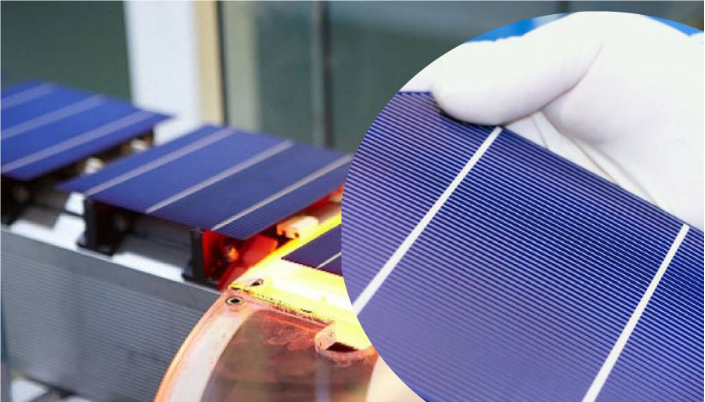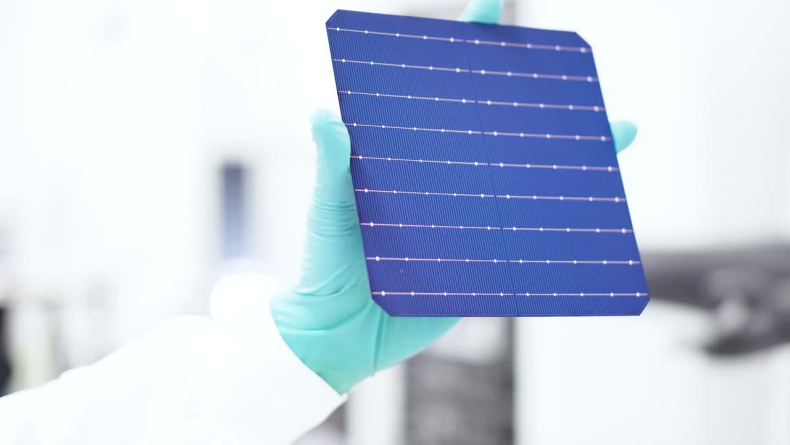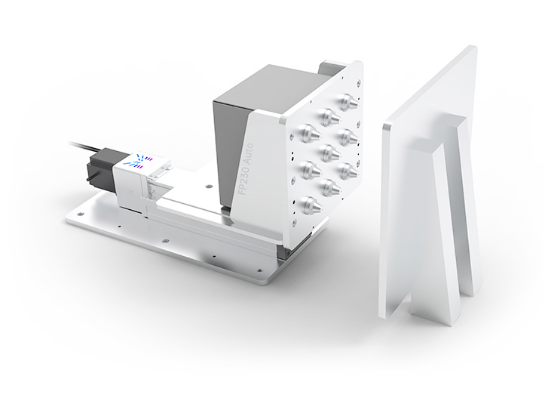
Quantum Efficiency Tester
PL/EL Integrated System
PV-Reflectumeter
3D Confocal Microscope
In-Line Four Point Probe Tester
Four Point Probe Tester
In-Line Thin Film Thickness Tester
Raman Spectrometer
FTIR Spectrometer
Spectrophotometer
Automatic Spectroscopic Ellipsometer
Contact Resistance Tester
Ultra depth of field 3D microscope
Auto Visual Tester
VMM PV Vision Measuring Machine
Solar Cell Horizontal Tensile Tester
Steady State Solar Simulator for Solar Cell
Solar Cell UV Aging Test Chamber
Solar Cell Comprehensive Tensile Tester
Visual Inspection Tester
Wet Leakage Current Tester
PV Module EL Tester
PV Module UV Preconditioning Chamber
Steady State Solar Simulator for PV Module
Current Continuous Monitor
Potential Induced Degradation Test
Bypass Diode Tester
LeTID Test System
Reverse Current Overload Tester
Impulse Voltage Tester
Hipot Insulation Tester
Ground Continuity Tester
Hipot Insulation Ground Tester
Damp Heat Test Chamber
Humidity Freeze Test
Thermal Cycle Test Chamber
Dynamic Mechanical Load Tester
Static Mechanical Load Tester
Hail Impact Tester
Robustness of Termination Tester
Module Breakage Tester
Cut Susceptibility Tester
Peel Shear Strength Tester
Universal Testing Machine (Single-arm)
Universal Testing Machine (Double-arm)
Glass Transmittance Tester
Acetic Acid Test Chamber
EVA Degree of Crosslinking Test System
Junction Box Comprehensive Tester
Drop ball tester
Semi-automatic scanning four-probe tester
Stylus Profilometer
Maximum Power Point Tracker
Perovskite Glass Transmittance Tester
Perovskite P1 Laser Scribing Multifunctional Testing Machine
Perovskite Online PL Tester
Perovskite Online Sheet Resistance Tester
Online Perovskite Film Thickness Tester
Perovskite Process Inspection Workstation
Portable IV Curve Tester
Portable EL Tester
Portable Thermal Imaging Tester
Solar Module Multi-Channel Testing System
PV Inverter Power Quality Tester
Drone EL Tester
IV Tester
IVEL Cell Sorting Machine
An In-depth Analysis of the Oxidation Annealing Process of TOPCon Cells
Date : 20 November 2023Views : 870
In order to fundamentally and directly improve the photoelectric conversion rate of TOPCon solar cells, solar cell manufacturers usually need to perform an oxidation annealing process on the surface of the solar cell, so that the deposited thin film material has a higher sheet resistance/resistivity. The oxidation annealing process is an important process that affects the performance of TOPCon solar cells. The Built-in Four-Point Probe Tester produced by Millennial Solar can measure the square resistance/resistivity of an area in TOPCon solar cells through unique 5-point and 9-point fully automatic scanning technology, and can store the measured data. Compare it with data from other areas to scientifically evaluate the performance stability of the solar cell after depositing the thin film!

![]()
Learn more about TOPCon solar cells
TOPCon solar cell is a high-efficiency solar cell technology based on tunneling oxide layer passivation contact. Its cell structure is an N-type silicon substrate cell, and a layer of ultra-thin silicon oxide is prepared on the back of the cell. A thin layer of doped silicon is then deposited, which together form the passivating contact structure. By depositing these thin film materials, surface recombination and metal contact recombination can be effectively reduced, and the open circuit voltage and fill factor of solar cells can be improved.

For TOPCon solar cells that have deposited thin film materials, it is difficult to have a deep understanding of the resistivity/sheet resistance of the thin film materials and to evaluate the photoelectric conversion rate. Generally, it is necessary to use external factors such as some testing equipment to conduct scientific testing. The Built-in Four-Point Probe Tester, which is used to measure various thin film materials such as ITO films and amorphous silicon films, has four-probe technology that is different from non-contact eddy current measurement. This technology can achieve higher measurement resolution. Higher accuracy, stronger stability, and wider measurement range.
![]()
Effect of oxidation annealing on the performance of TOPCon solar cells
● The thickness and quality of the silicon oxide film layer are important factors affecting the performance of TOPCon solar cells. The thickness and quality of the silicon oxide film layer determine the strength of the tunneling effect, which in turn affects the selective collection and recombination loss of carriers. Generally speaking, the thinner, more uniform and defect-free the silicon oxide film is, the stronger the tunneling effect will be, the better the selective collection of carriers will be, and the smaller the recombination loss will be, the photoelectric conversion rate of TOPCon solar cells will be higher. However, the silicon oxide film cannot be too thin, otherwise the density of interface states will increase and the passivation effect will decrease. Therefore, it is necessary to find an optimal silicon oxide thickness to balance the tunneling effect and passivation effect.
![]()
Built-in Four-Point Probe Tester

E-mail: market@millennialsolar.cn
FPP230 Auto is an online four-probe sheet resistance meter specially designed for photovoltaic process monitoring. It can quickly and automatically scan the sample to obtain sheet resistance distribution information at different locations of the sample. The measurement size can be customized according to the size of the customer's sample.
●Measurement range meets sheet resistance of 1μΩ~100MΩ
● Able to match automation equipment and traceable at any time
●Perfectly connected with the automated production process of the production line
● Provide good electrical contact while ensuring 0 fragmentation rate
●The number of measurement points can be customized according to customer needs
Using the oxidation annealing process for production can greatly improve the photoelectric conversion rate of TOPCon solar cells. However, in order to gain a deeper understanding of the sheet resistance/resistivity of the cells after annealing, scientific measurement must be carried out with precision testing equipment. The Built-in Four-Point Probe Tester produced by Millennial Solar can achieve square resistance/resistivity measurements in multiple areas on a solar cell through its unique fully automatic 5-point and 9-point scanning functions. Ensure zero fragmentation rate, thereby assisting solar cell manufacturers in subsequent production!

































































